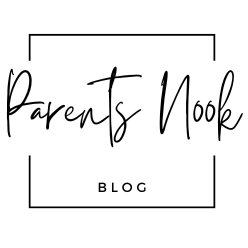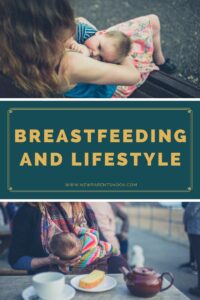Some links on our blog are affiliate links, meaning at no extra cost to you, we may earn a commission if you purchase through them. We participate in the Amazon Affiliate Program, and we recommend products we believe in. Your support helps us keep providing valuable content. Thank you!
The arrival of a new baby is often portrayed as a time of pure joy and fulfillment. However, for many new mothers, the postpartum period brings with it an unexpected guest: postpartum depression (PPD).
This condition, characterized by deep sadness, anxiety, and fatigue, can significantly impact a mother’s ability to care for herself and her newborn.
In our comprehensive guide, “Navigating the Shadows: Understanding and Overcoming Postpartum Depression,” we delve into the complexities of PPD, offering insights, strategies, and resources to support mothers facing this challenging condition.
Introduction to Postpartum Depression
Postpartum depression is a serious mental health issue that affects approximately 1 in 7 women after childbirth. Unlike the more mild and brief “baby blues,” PPD can persist for months and, without proper treatment, can have long-lasting effects on the mother, child, and family. Understanding the signs, symptoms, and treatment options is crucial for early intervention and recovery. This guide aims to shed light on PPD, breaking the silence and stigma that often surrounds it, and providing a path forward for affected mothers.
Understanding Postpartum Depression
Signs and Symptoms
PPD can manifest in various ways, including, but not limited to:
- Persistent sadness, hopelessness, and emptiness
- Lack of interest in the baby or previously enjoyed activities
- Excessive crying and irritability
- Changes in appetite and sleep patterns
- Overwhelming fatigue or loss of energy
- Feelings of worthlessness, guilt, or inadequacy
- Difficulty bonding with the baby
- Thoughts of harming oneself or the baby
Risk Factors
Several factors can increase a woman’s risk of developing PPD, including:
- A history of depression or other mental health disorders
- A lack of support from family or friends
- Anxiety or negative feelings about the pregnancy
- Complications during childbirth or with the baby’s health
- Financial stress or relationship problems
Overcoming Postpartum Depression
Seeking Professional Help
The first step in overcoming PPD is recognizing the need for professional help. Healthcare providers can offer various treatment options, including:
- Therapy: Cognitive-behavioral therapy (CBT) and interpersonal therapy (IPT) are effective in treating PPD.
- Medication: Antidepressants may be prescribed, taking into account the mother’s breastfeeding status.
- Support Groups: Joining a PPD support group can provide emotional support and shared experiences.
Self-Care Strategies
In addition to professional treatment, implementing self-care strategies can aid in recovery:
- Rest and Sleep: Prioritize sleep and rest whenever possible, even if it means asking for help with the baby or household tasks.
- Nutrition: Maintain a balanced diet to support physical health and mood stability.
- Exercise: Gentle exercise, such as walking or postnatal yoga, can improve mood and energy levels.
- Social Support: Stay connected with family and friends. Sharing feelings and experiences can alleviate the sense of isolation.
Building a Support Network
Creating a support network is vital for mothers experiencing PPD. This network can include:
- Partners, family, and friends who understand and support the mother’s needs
- Healthcare providers specializing in postpartum care
- Support groups and online communities for mothers with PPD
Postpartum depression is a condition that casts a shadow over what is often expected to be a luminous period in a mother’s life. However, with the right understanding, treatment, and support, it is possible to navigate through the darkness of PPD and emerge stronger on the other side.
This guide serves as a beacon of hope and a resource for those struggling, emphasizing that they are not alone and that help is available.
Remember, acknowledging the need for help is a sign of strength, and taking the first step towards recovery is the beginning of a journey back to oneself.
Postpartum depression (PPD) is a serious condition that affects many new mothers, characterized by feelings of sadness, anxiety, detachment from the baby, and in severe cases, thoughts of harming oneself or the baby. Recognizing the importance of addressing mental health during the postpartum period, here are some resources and strategies to help those experiencing PPD:
Support and Counseling Services
- Postpartum Support International (PSI)
- Website: Postpartum Support International
- Services Offered: PSI provides a helpline, online support meetings, a directory of local support resources, and information about postpartum depression and anxiety.
- The National Suicide Prevention Lifeline
- Phone: 1-800-273-TALK (1-800-273-8255)
- Services Offered: A 24/7, free, and confidential support for people in distress, prevention and crisis resources.
- Crisis Text Line
- Text: Text HOME to 741741 in the United States.
- Services Offered: Free, 24/7 support for those in crisis, connecting individuals with trained crisis counselors.
Online Resources and Communities
- BabyCenter Postpartum Depression & Anxiety Group
- Website: BabyCenter Community
- Services Offered: An online forum where new parents can share experiences, advice, and find peer support.
- The Bump Postpartum Depression Support Forums
- Website: The Bump Community
- Services Offered: Forums dedicated to PPD support where members can discuss their feelings, challenges, and receive support from fellow parents.
Professional Help and Therapy
- Talkspace or BetterHelp
- Services Offered: Online therapy platforms that connect individuals with licensed therapists to provide support through text, voice, or video sessions.
- Local Mental Health Professionals
- Finding a Therapist: Consider seeking a therapist specializing in postpartum issues. Websites like Psychology Today’s Therapist Directory can help locate professionals in your area.
Educational Resources
- Postpartum Depression: Action Towards Causes and Treatment (PACT) Consortium
- Website: Research and information on PPD to promote understanding and advocacy.
- American Psychological Association (APA) Postpartum Depression Resources
- Website: APA’s Resource Page
- Services Offered: Informational resources, including how to find help and strategies to cope with PPD.
Apps for Mental Health and Wellness
- Peanut
- App Feature: Connects mothers and provides a space to meet, talk, and learn from each other in a supportive environment.
- Moodpath
- App Feature: An interactive mental health screening and improvement app that can help track emotional well-being and provide resources.
Remember, seeking help is a sign of strength. It’s important for anyone suffering from postpartum depression to reach out for support, whether through professional services, support groups, or educational resources. No one should navigate this challenging time alone, and help is available.







